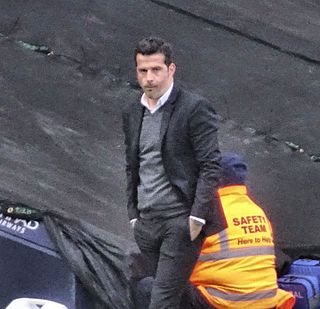A Quote by Salvador Dali
Mistakes are almost always of a sacred nature, understand them thoroughly.
Quote Topics
Related Quotes
Be proud of your mistakes. Well, proud may not be exactly the right word, but respect them, treasure them, be kind to them, learn from them. And, more than that, and more important than that, make them. Make mistakes. Make great mistakes, make wonderful mistakes, make glorious mistakes. Better to make a hundred mistakes than to stare at a blank piece of paper too scared to do anything wrong.
Here's a memonic device that I feel teaches how we can properly cope with failure. Forget about your failures; don't dwell on past mistakes Anticipate failure; realize that we all make mistakes. Intensity in everything you do; never be a failure for lack of effort. Learn from your mistakes; don't repeat previous errors. Understand why you failed; diagnose your mistakes so as to not repeat them. Respond, don't react to errors; responding corrects mistakes while reacting magnifies them. Elevate your self-concept. It's OK to fail, everyone does; now how are you going to deal with the failure
I have always gone to nature, since I was a kid. I was brought up in the woods, I did not have lots of friends, so I spent lot of time alone. My mother always loved to live in the forest; she loved gardens, birds and nature and taught me a deep respect for that. She taught me about growing food and vegetables and to take care of animals. They also have feelings. So nature was always something sacred for me, the place I can go, meditate and pray. It's like a church in the nature for me.
I was always embarresed by the words 'sacred,' 'glorious,' and 'sacrifice' and the expression 'in vain.' We had heard them, sometimes standing in the rain almost out of earshot, so that only the shouted words came through, and had read them on proclamations that were slapped up by billposters over other proclamations, now for a long time, and I had seen nothing sacred, and the things that were glorious had no glory and the sacrifices were like the stock yards at Chicago if nothing was done with the meat except to bury it.
Our Nation, a great stage for the acting out of great thoughts, presents the classic confrontation between Locke's views of the state of nature and Rousseau's criticism of them... Nature is raw material, worthless without the mixture of human labor; yet nature is also the highest and most sacred thing. The same people who struggle to save the snail-darter bless the pill, worry about hunting deer and defend abortion. Reverence for nature, mastery of nature- whichever is convenient.







































